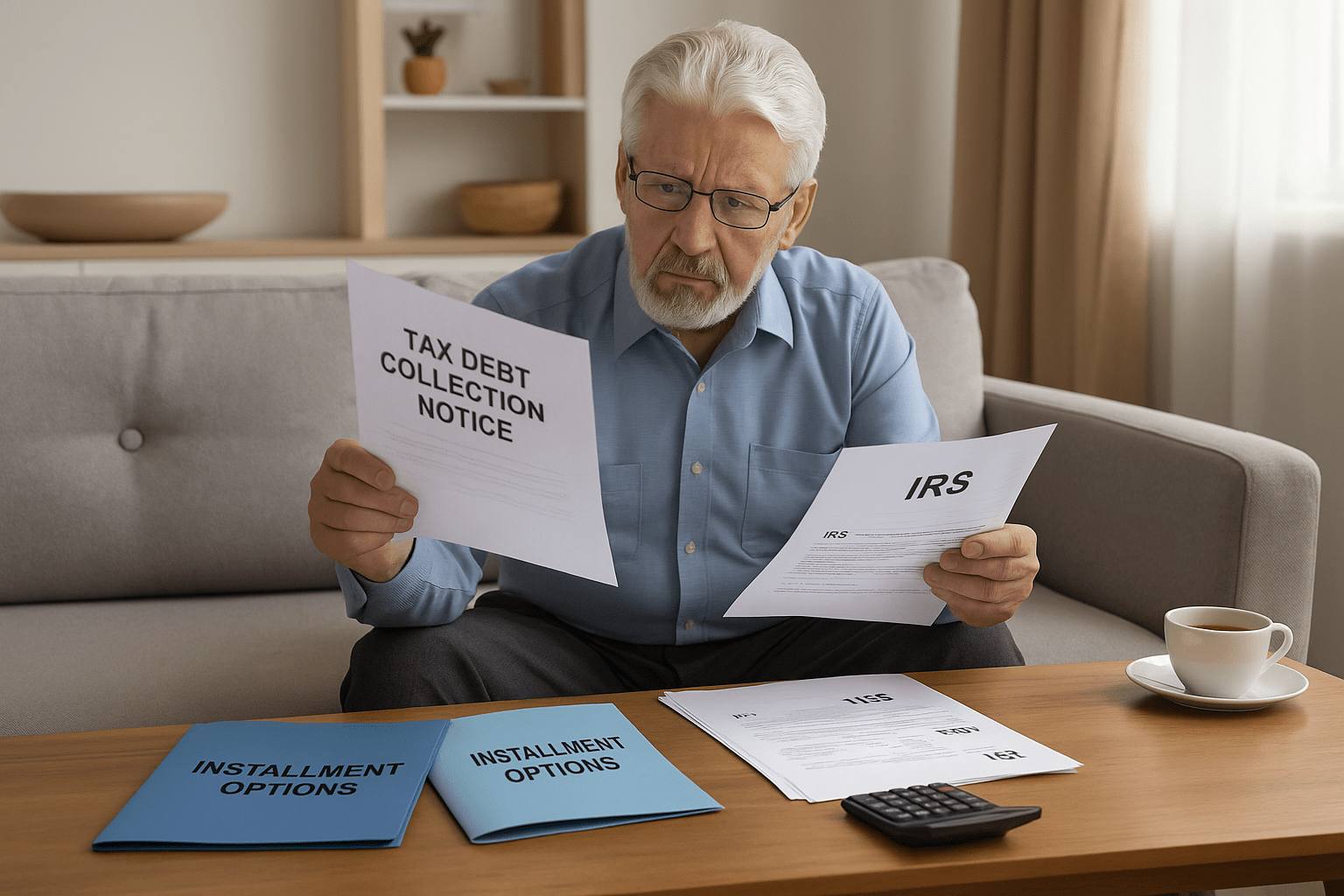
Tax Debt Collection Agency: What to Know and How to Respond
Tax Debt Collection Agency: Your Rights and Next Steps
A tax debt collection agency may contact you if the IRS has transferred your unpaid tax debt to a private firm. While the IRS still oversees the process, these private collectors follow specific rules and limitations. Knowing how these agencies operate—and what your rights are—can help you avoid unnecessary stress and prevent financial missteps.
Why the IRS Uses Private Collection Agencies
The IRS occasionally turns over old or inactive tax debts to third-party collection agencies. This usually happens when a taxpayer hasn’t responded to previous IRS notices or hasn’t made payments for an extended period.
Who Gets Referred?
Not everyone is assigned to a tax debt collection agency. The IRS selects accounts that are inactive, not under audit or appeal, and not currently being handled by a revenue officer.
Authorized Collection Agencies
Only a few companies are approved by the IRS to collect tax debt. As of 2025, some of these include:
- CBE Group
- ConServe
- Performant
- Coast Professional
Confirming Legitimacy
Before discussing your finances, ask the caller for a unique Taxpayer Authentication Number or refer to your IRS CP40 notice—official confirmation that your case was assigned.
What a Tax Debt Collection Agency Can and Can’t Do
Private tax debt collectors must follow the Fair Debt Collection Practices Act (FDCPA) and additional IRS rules.
What They Can Do
- Request payment for your tax debt
- Explain IRS-approved payment options
- Ask you to confirm certain personal information for identification
What They Can’t Do
- Threaten you with jail time or property seizure
- Harass or call at inappropriate hours
- Demand payment via gift cards or money transfer apps
If you experience any of the above, you’re likely dealing with a scam.
How to Protect Yourself from Scams
Scammers often pretend to be IRS collectors to pressure people into paying fake debts. Protect yourself by staying informed.
Verify IRS Authorization
Always check for an IRS CP40 notice before accepting a call. Ask the caller for their name, badge number, and agency name, and verify it on the IRS website.
Guard Your Personal Information
Never give out your full Social Security number, banking details, or debit card information to anyone who calls unsolicited.
Report Suspicious Contacts
If you believe someone is impersonating a tax debt collection agency, report the incident to the Treasury Inspector General for Tax Administration (TIGTA) or the Federal Trade Commission (FTC).
What to Do If You Can’t Pay the Full Amount
If you truly owe the tax debt but cannot pay in full, there are legitimate IRS options available.
Installment Agreements
You may be eligible to set up a monthly payment plan with the IRS, which can be done online or with assistance from the collector. Learn more about your options for IRS installment agreements.
Offer in Compromise (OIC)
This lets you settle your tax debt for less than the full amount if you demonstrate financial hardship. However, this must be arranged directly with the IRS—not through a collection agency. You can explore the requirements for an Offer in Compromise to determine if you may qualify.
Work with the IRS
You can always request the IRS take your case back from the agency, especially if you prefer working directly with the IRS or believe there’s been a mistake.
Take Control When a Tax Debt Collection Agency Contacts You
Don’t panic if a tax debt collection agency contacts you—but don’t ignore it either. Take time to verify the legitimacy of the contact, understand your rights, and consider your repayment options. With the right information, you can navigate the process safely and protect your finances.
Talk to a Tax Professional Before Speaking with a Collector
If you’re unsure how to respond to a tax debt collection agency, contact us to speak with a licensed tax professional. We’ll help you understand whether the contact is legitimate, explain your options, and work with you to resolve the situation with confidence.
Frequently Asked Questions
1. Why did the IRS assign my case to a collection agency?
Because your account was inactive and not currently under audit, appeal, or in IRS collections.
2. How do I know if a tax debt collector is legitimate?
You should receive a CP40 notice from the IRS and can verify the collector on the IRS website.
3. Can a collection agency garnish my wages?
No. Only the IRS, not private collectors—can issue wage garnishments or levies.
4. What are my rights when dealing with tax debt collectors?
You have the right to fair treatment, privacy, and the ability to dispute the debt if needed.
5. Can I request the IRS take my case back from the agency?
Yes. If you prefer to work directly with the IRS, you can make that request in writing.
Key Takeaways
- The IRS uses approved tax debt collection agencies for inactive accounts.
- You have the right to verify legitimacy and challenge the debt.
- Private collectors can’t enforce levies or threaten you.
- Never give sensitive info over the phone unless fully verified.
- Professional help can protect your rights and offer real solutions.
Free Tax Case Review
If you are struggling with tax debt or have received a letter from the IRS complete the form below.Attorney Advertising. This site is a legal marketing service and does not provide legal advice. Submitting information does not create an attorney-client relationship. Results are not guaranteed.
IRS Audit
You received an audit notice from the IRS
Tax Debt Relief
You owe the IRS money and are looking for relief options
Wage Garnishment
The IRS is taking part of your wages to pay off your debt
Tax Lien
The IRS put a legal claim on your property
IRS Property Seizure
The IRS is going to take your property to pay down or pay off your tax debt
Penalty Abatement
You want to request to remove or reduce penalties assessed by IRS
Innocent Spouse Relief
Relief from joint tax debt caused by your spouse or former spouse
Tax Debt FAQ
Common facts, questions and answers about tax debt and tax debt reilef
Tax Debt Lawyer
A tax debt lawyer can help you with your tax debt problems
Recent Posts
- What Qualifies for Innocent Spouse Relief? | Understanding IRS Eligibility Requirements
- What Is Innocent Spouse Relief | Complete Guide to IRS Tax Debt Relief Options
- Innocent Spouse Relief | A Legal Guide to IRS Tax Debt Relief Options
- How Long Will the IRS Give You to Pay Your Taxes | Understanding Your Payment Options
- What Is the 600 Rule in the IRS | How Does It Affect Your Taxes?



